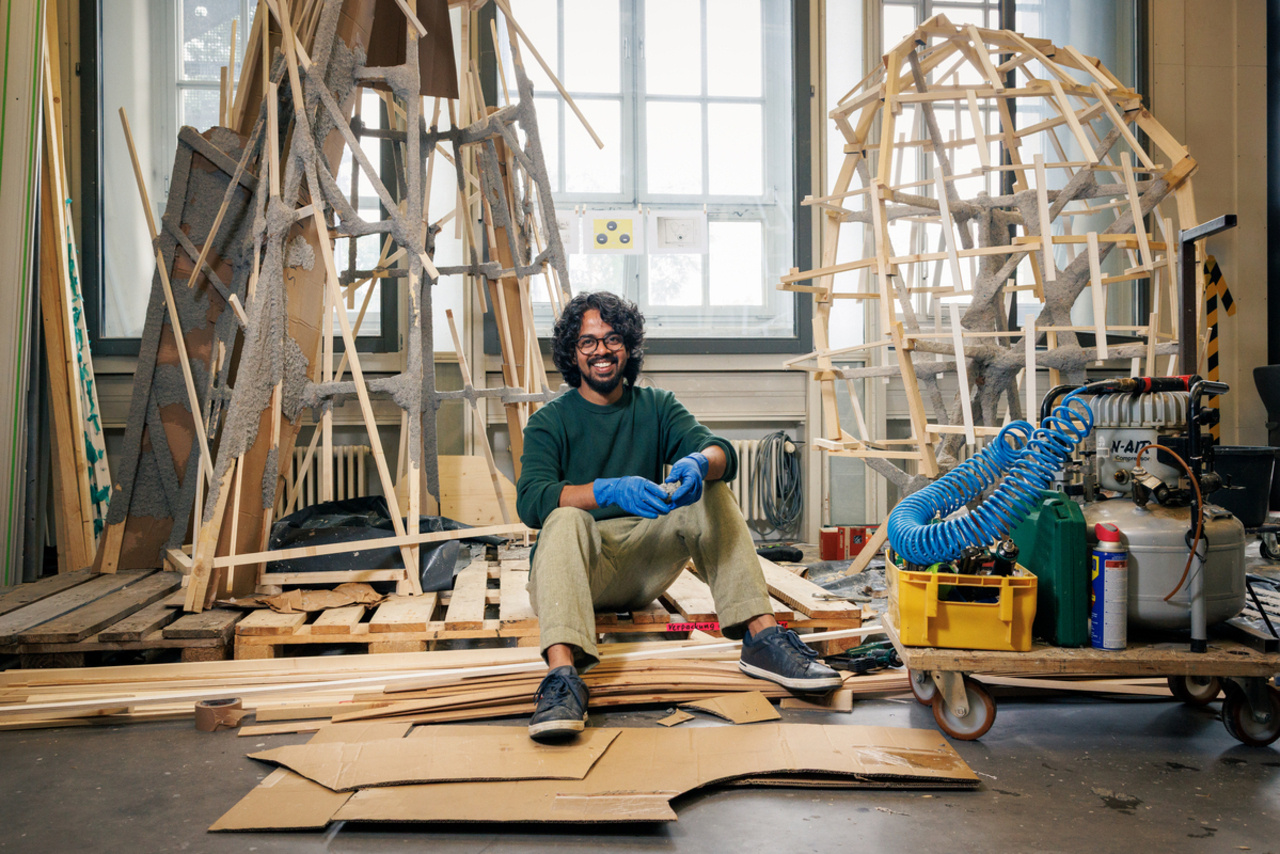Maksud Ali Mondal
Biography
Maksud Ali Mondal grew up in a Bengali-Muslim family with no preserved history in objects, photographs, documents, or writings. Bengal’s Sufi, Baul, and Fakir practices—and their philosophies, songs, and poetry centered on harmony, coexistence, and nonviolence—along with Indigenous knowledge and relationships with nature, deeply influence his artistic practice.
He closely observes subtle natural phenomena in his surrounding landscapes: moisture, dust, and mold in houses; plants sprouting from rippling, damp, broken walls; moss changing with the seasons; the smell of decomposition; fungi growing on discarded objects; or mushrooms sprouting where rain leaks from a broken roof—right after the first monsoon rain.
At the same time, he listens to, witnesses, and reflects on past and ongoing violence against minorities, lower castes, and marginalized communities—lives controlled and suppressed by name, language, religion, color, and identity. These themes emerge in his work through overlooked, disregarded, neglected, or non-human interactions.
His work often responds to ephemeral and transient natural processes, the trauma of living beings, behavioral control, environmental manipulation, and the suppression of life forms. He explores the post-natural world and its relationship with microorganisms. He questions colonial museum concepts—where objects must be clean, perfect, and preserved—as well as modern ideals that reject contamination, decay, rot, and stain as negative. These metaphors, often rooted in science and metaphysics, are used to describe and devalue marginalized people and communities, based on socially constructed categories like value/worthlessness, purity/impurity, hygiene, and cleanliness.
His process-based work embraces disintegration. He experiments with biological processes and materials appropriate to each piece. Through his practice, he engages with anthropology and ecology by dialoguing with ecosystems, biological evolution, and site-specific realities. His work lies at the intersection of visual art, anthropology, biology, chemistry, agriculture, and gardening.
He works with time-based, immersive, sensory, ephemeral, and performative aspects of nature—through making, growing, and transforming. With this approach, he created a site-specific installation titled "Fungal Garden" at the Max Mueller Bhavan, supported by the Goethe-Institute Delhi and conceived by the Raqs Media Collective (2020). In this project, he responded to spores and microbes present in the air and materials by offering conditions like moisture, humidity, and temperature. These invisible life forms responded, forming a new ecosystem. "Fungal Garden" expands the idea of habitat and its relationship with microbial life.
The installation becomes a performance of microbial behavior and biological decomposition processes. It positions the space as an ever-changing environment evolving over time—an evolving microcosm of countless microorganisms forming a whole. It reflects the cooperative but constantly changing composition of all life, compelling viewers to see decay and rot as natural parts of existence. This experience invites visitors, as part of the ecosystem and the artwork, to observe the wide variety of species around them, forming a temporal and interconnected relationship through time and shared experience.
Maksud begins his work on-site, gradually building engagement with the place and environment. His practice arises from the site's specificities and unfolds interdisciplinarity. Through these site-specific, durational, sensory, disintegrative processes and activities, he arrives not at conclusions but at situations that potentially spark new dialogues among viewers.
As of 2025, Maksud is working on several projects, including one exploring human relationships with food and microbes: how microbes, fungi, and insects thrive in toxic environments by feeding on pollutants. For example, the Matsutake mushroom emerged after Hiroshima, consuming radiation. He questions what environmentalism means when microbes consume plastic, life persists amid radiation, and organisms grow in toxic or disturbed landscapes. He also investigates plants and chlorophyll, questioning what is considered valuable or valueless to humans.
We were born in the darkness, moisty, smelly, in a slimy liquid.
Without name, gender, religion, color, or identity,
with the state of transforming, mutating, and growing with the millions of other life forms.
